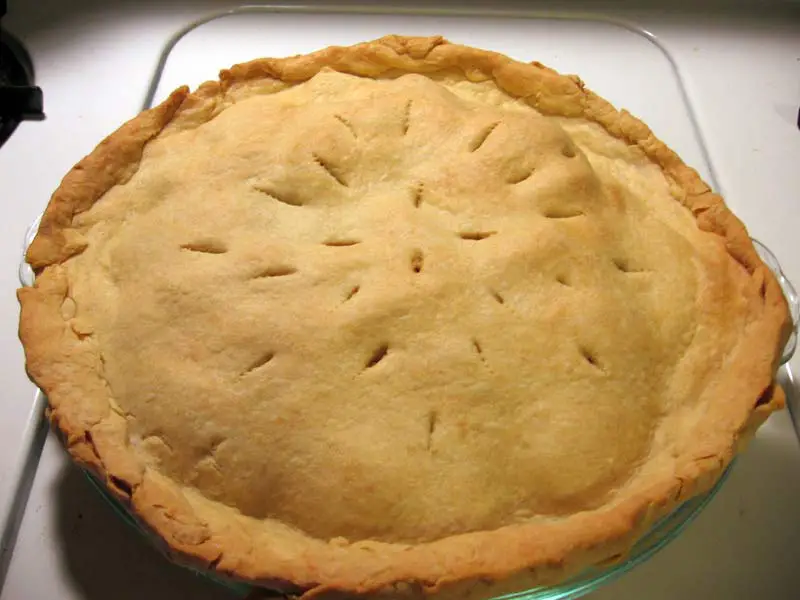How Long Do Cooked Fish Cakes Keep in The Fridge?
Fish cakes are a delicious and affordable way to add protein to your meals. These tasty patties can be made with various types of fish and can be enjoyed in so many ways; from sandwiches to salads and even paired with noodles. However, if you enjoy cooking in large batches, or simply have leftover fish cakes, you may find yourself wondering how long they will keep in the fridge. In this article, we will explore the factors that affect the shelf life of cooked fish cakes, best practices for storing them, and how to reheat them effectively.
Introduction
Before delving into the details of storing cooked fish cakes, let’s take a moment to define what they are. Fish cakes are a mixture of flaked fish and other ingredients such as potatoes, breadcrumbs, and spices. This mixture is shaped into patties, fried or baked until golden brown, and served as a delicious meal or snack.
When it comes to variations of fish cakes, there are plenty. Some popular ones include Thai fish cakes flavored with lemongrass and chili flakes or salmon cakes made with canned salmon and flavored with dill. To cook these delicious patties, all you need are a few basic ingredients such as fresh or canned fish, potatoes or breadcrumbs for binding purposes and you’re good to go.
Reasons Why You Might Need to Store Cooked Fish Cakes
There are numerous reasons why you might need to store cooked fish cakes. Perhaps you prepared them in advance for meal prepping purposes, or you cooked a large batch for guests that didn’t finish all of them. Alternatively, you could have found yourself in a position where you had excess ingredients that needed utilizing.
Whatever the case may be- storing cooked fish cakes can save time when it comes to meal planning and budgeting.
Factors That Affect the Storage Life of Cooked Fish Cakes
When it comes to storing cooked fish cakes, certain factors affect their shelf life. Temperature control strategies when cooking and storing can contribute to how long your fish cakes will stay fresh.
The type of fish used in the recipe also has a significant impact on the storage life of cooked fish cakes. Fatty types of fish such as salmon, trout, and mackerel tend to spoil faster than leaner varieties like cod or halibut. Additionally, fresh fish will last less time than frozen ones.
Best Practices for Storing Cooked Fish Cakes In The Fridge
Storing cooked fish cakes properly is vital to ensure freshness. Let’s take a closer look at the best practices for storing them in the fridge.
- Before storing, allow the fish cakes to cool down completely so that steam evaporation doesn’t cause them to become soggy in the packaging.
- The key to excellent quality and longer shelf life is an extended shelf life is packaging your food promptly and correctly – Avoid leaving your food in its original container or wrapping as this can allow air and bacteria inside.
- You can place the cooked fishcakes in an airtight container or resealable plastic bags after they have cooled completely, leaving no air pockets inside or outside for maximum protection.
- Label storage bags with proper information on expiry dates before refrigerating. This will let you know when it’s time to use them before they spoil.
- If possible, store your cooked fish cakes at temperatures below 40°F (4°C). This will help them stay fresh longer.
How long Can Cooked Fish Cakes Last In The Fridge?
Now that we know how to store our fish cakes, let’s get into the shelf life of cooked fish cakes.
On average, cooked fish cakes can last for up to 3 days in the fridge if they are stored correctly. However, it’s essential to note that this shelf life may vary based on factors such as the type of fish used, storage temperature, and overall storage methods.
Does the Type of Fish Affect Their Shelf-Life?
Yes! The type of fish used in your recipe affects how long your cooked fish cakes will remain fresh. Fish with a higher fat content, such as salmon and mackerel, tend to spoil faster than leaner options such as haddock or cod. Make sure always to check the highest storage time for the type of fish you use version its fat content.
What is The Ideal Storage Temperature?
Storing your fish cakes at ideal temperatures will help keep them fresh for longer. Keep in mind that bacteria thrive at temperatures between 40-140°F (4-60°C), so it’s important to store food items below 40°F (4°C). You can use an appliance thermometer in the fridge so you can monitor and maintain accurate temperature levels.
Signs That Your Stored Fish Cakes Have Spoilt
It’s important to be able to recognize indications that indicate whether the fishcakes are safe to eat or not. Below are some indicators that your stored fish cakes may have gone bad:
- color: if your fish cakes show discoloration or turn greyish, they may be spoiled.
- texture: if they were mushy or slimy before refrigerating, or if when you remove them from their container they have a slimy coating.
- smell: Rancidity can manifest as an off smell that smells “fishy” but not quality fishy. If you experience an ammonia-like odor, that can be a sign of bacterial spoilage.
- gas production: any formation of gas or bloating can imply bacterial growth.
How to Effectively Reheat Cooked Refrigerated Fish Cakes
If you find yourself with leftover fish cakes, you may want to reheat them before eating. The key to doing that is ensuring the cooked fish cake retains its original moisture and flavor. Here are some safe methods for reheating your cooked refrigerated fish cakes:
Microwave method one
Place the fish cake on a microwave-safe plate, cover it with a damp paper towel, and put it in the microwave. Heat it up for 30 seconds by setting the microwave at 50% power. Flip the patty over and heat for another 30 seconds to ensure even cooking.
Microwave method two
Put the fish cakes in an oven-safe dish along with a tablespoon of water per piece. Cover the dish with plastic wrap, leaving space for venting, and put it inside the microwave. Heat up for about 2-3 minutes depending on wattage at 50% power.
Oven-baked method
Preheat your oven to 350°F (175°C). Line a baking tray with parchment paper before placing your cooked fishcakes atop it. Cover them loosely with aluminum foil to avoid crispy edges. Then put back in the oven and bake for around 10 minutes or until heated through.
Always keep an eye on your food when reheating so that they don’t overcook resulting in dryness.
Should You Freeze Cooked Fish Cakes Instead?
Freezing your cooked fish cakes is an excellent option if you want to store them beyond three days. It’s important to follow appropriate procedures for optimum results:
Pros and Cons of freezing cooked fish cakes
- Benefits: freezing can help maintain the original moisture and flavor
- Disadvantages: Not all fish cakes can handle the undesirable texture changes that occur after being thawed – some may be too watery. Additionally, your fish cake might experience drying or freezer burn.
Frozen storage
The first thing to do is prepare your cooked fish cakes for freezer storage. Place them onto sheets with parchment paper laid on top of each other in a freezer-safe container or zip-lock airtight bag and then seal tightly.
Freezer temperature guidelines
Remember that freezer burn happens even in a cold environment. Always ensure that your freezer maintains temperatures at or below zero degrees Fahrenheit (-18°C) degrees Celsius to extend flavorlessness lifespan.
Fast-freezing strategies
Naturally, the longer it takes for food to freeze, the higher the chance of ice crystals forming and bacteria multiplication. To counteract this problem for many cooked items, individually wrapping them before placing them in storage containers. Fast-freeze (blast freeze) them at low temperatures where possible until they are firm enough to store without becoming ice rock.
Thawing and Roasting tips
When you’re ready to eat it, remove your prepared frozen fish cakes from storage, leave them in the refrigerator overnight to thaw entirely. Reheat preferred via oven baking so that they regain their crispness while maintaining their moisture levels.
Conclusion
Cooked fish cakes can last up to three days when stored correctly in a fridge kept below 40°F (4°C). Make sure always to check how long past that initial time frame your chosen fish cake variety can last without spoilage. It also helps to know that freezing cooked fish cakes can be an excellent way to store them beyond three days. However, always stick to freezer safety guidelines when freezing and reheating your fish cakes. With the information shared in this article, you should now be able to store, reheat and enjoy your cooked fish cakes with confidence.
Frequently Asked Questions
How can I store cooked fishcakes?
Once cooled, place cooked fish cakes in an airtight container or wrap them in plastic wrap. Store them in the fridge and consume within three to four days.
Can I freeze cooked fish cakes?
Yes, you can freeze cooked fish cakes for up to three months. Wrap them individually with plastic wrap or place them in a freezer-safe container for storage.
How do I know if my leftover fish cakes are still safe to eat?
If you’re uncertain about the safety of your leftover fishcakes, use your senses. If they have an off smell, color, or texture, it’s best to discard them immediately. Trust your instincts and don’t take any chances.
Are there any tips for reheating leftover fish cakes?
Reheat cooked fish cakes by placing them in a preheated oven at 350°F for 10-15 minutes. Alternatively, you can reheat them on a pan with a bit of oil until heated through. Ensure that they are piping hot before consuming.






